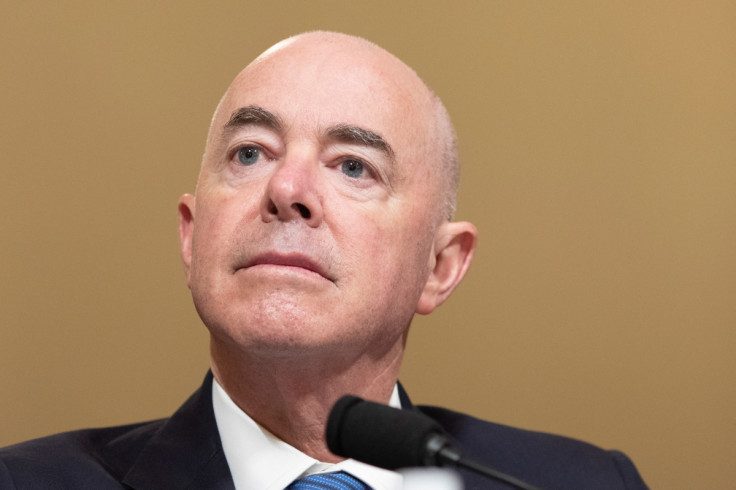
Department of Homeland Security Secretary Alejandro Mayorkas denied that the government will increase the amount of appointments it assigns through its CBP One app following a crackdown on asylum seekers entering the country between ports of entry.
Speaking to press, Mayorkas said the government has "limited capacity" to process the requests and that it also faces "a series of operational and political restrictions."
He reiterated that the app, which allocates 1,450 appointments a day, is the only lawful mean to seek asylum from Mexico, and that over half a million people can present their cases each year.
Political observers had pondered about the possibility after the administration implemented a policy that heavily restricts the admission of asylum-seekers after daily averages exceed 2,500 per day.
Immigration advocates are among those who have been highly critical of the measure, with the Washington Office on Latin America (WOLA) emphasizing that the figures sought have been hardly met throughout the century and enforcement will violate the law.
The organization's Adam Isacson highlighted that the threshold necessary for the border to be "reopened," fewer than 1,500 encounters a day for two weeks, has only been seen in 42% of the century's months. "58% of all months this century (172 of 296) have seen daily averages above 1,500," he said, using Customs and Border Patrol (CBP) figures as reference.
However, both Republicans and immigration advocates have also criticized the use of CBP One. The former claim the app is an "open borders" tactic that incentivizes additional migrants to travel to the United States.
As for the latter, a report by Amnesty International. says the use of CBP One "violates international human rights and refugee law."
"People seeking asylum experience challenges using the application due to an onerous registration process, technological errors and flaws, and lack of knowledge about the application and how it works," the document, titled "CBP One — A Blessing or a Trap?," highlights.
Amnesty's report underscores that the app forces some people to wait for months, a significant problem for many as the app can only be used from Central and Northern Mexico.
Many people from other countries in Latin America, particularly from Haiti, Honduras, and Cuba— which ranked highest according to the report— need to stay in Mexico for an uncertain period of time.
Amnesty International found that the majority stay in shelters or informal encampments with inadequate living conditions. They are often extorted, kidnapped, and subjected to discrimination, as well as sexual and gender-based violence by both state and non-state actors.
Moreover, the report underscores that some asylum seekers are unable to use the application for financial, literacy and language proficiency reasons, among others. The app can be used in Spanish, English and Creole.
© 2024 Latin Times. All rights reserved. Do not reproduce without permission.







